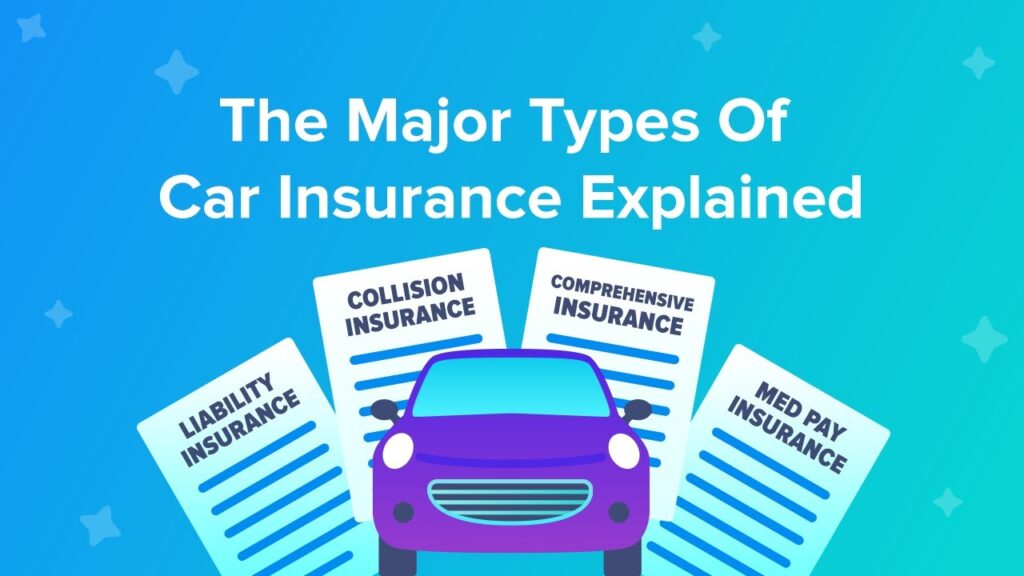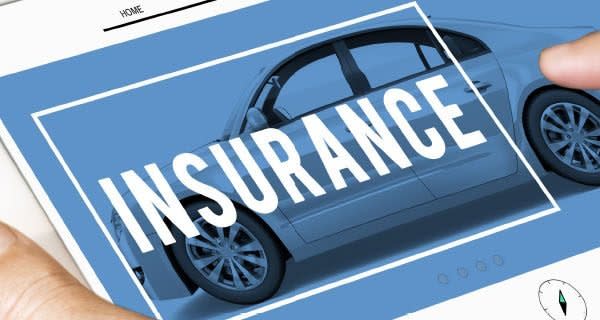The Ultimate Guide to Buying Car Insurance in the US – Looking for the perfect car insurance in the US? This comprehensive guide provides all the information you need to make an informed decision and find the best coverage for your vehicle.
Buying car insurance can be a daunting task, especially with the wide range of options available in the US market. From liability coverage to comprehensive plans, there are various factors to consider when choosing the right policy. In this ultimate guide to buying car insurance in the US, we will walk you through the essential steps, key considerations, and helpful tips to ensure you make the right choice for your needs.
Guide to Buying Car Insurance in the US:
What is Car Insurance and Why Do You Need It?

Understanding the Basics
Car insurance is a contract between you and an insurance company that provides financial protection in case of an accident, theft, or damage to your vehicle. It offers coverage for liability, medical expenses, and property damage, depending on the policy.
The Importance of Car Insurance
Car insurance is mandatory in the US to protect yourself, your vehicle, and others on the road. It provides financial security and peace of mind, ensuring that you can handle any unexpected expenses that arise from accidents or damage.

Types of Car Insurance
Liability Insurance
Liability insurance covers damages caused to others in an accident where you are at fault. It typically includes bodily injury liability and property damage liability, both of which are required by law in most states.
Collision Coverage
Collision coverage pays for repairs or replacement of your vehicle in case of a collision with another car or object. This coverage is especially important if you have a newer or high-value vehicle.
Comprehensive Insurance
Comprehensive insurance covers damages to your vehicle that are not caused by a collision, such as theft, vandalism, fire, or natural disasters. It provides added protection for a wide range of risks.
Personal Injury Protection (PIP)
Personal Injury Protection, commonly known as PIP, covers medical expenses and lost wages for you and your passengers, regardless of who is at fault in an accident. It is required in some states and highly recommended in others.
Uninsured/Underinsured Motorist Coverage
Uninsured/Underinsured Motorist (UM/UIM) coverage protects you if you are involved in an accident with a driver who doesn’t have insurance or has insufficient coverage. It helps cover medical expenses and property damage in such situations.
Determining Your Coverage Needs
Evaluating Your Vehicle’s Value
Before purchasing car insurance, it’s crucial to determine the value of your vehicle. If you have an older car with low market value, comprehensive coverage may not be necessary. However, if you own a new or expensive vehicle, comprehensive and collision coverage becomes more important to protect your investment.
Assessing Your Risk Factors
Consider your driving habits, the area you live in, and your previous driving history. If you frequently drive in high-traffic areas or have a history of accidents, opting for higher coverage limits might be beneficial. On the other hand, if you have a clean driving record and live in a low-risk area, you may be able to choose lower coverage limits.
State Requirements
Each state in the US has specific car insurance requirements. Familiarize yourself with the minimum coverage limits mandated by your state, as failing to meet these requirements can result in penalties and legal issues.
Choosing a Reliable Insurance Provider
Researching Insurance Companies
When selecting an insurance provider, it’s essential to research and evaluate different companies. Look for providers with a solid reputation, good financial stability, and a track record of excellent customer service.
Checking Financial Stability Ratings
Insurance companies’ financial stability ratings indicate their ability to pay claims. Consult independent rating agencies, such as A.M. Best or Standard & Poor’s, to assess the financial strength of potential insurance providers.
Reading Customer Reviews
Reading customer reviews can provide valuable insights into the experiences of policyholders with different insurance companies. Pay attention to reviews that highlight the company’s claims process, customer support, and overall satisfaction.

Comparing Quotes and Coverage
Gathering Multiple Quotes
Obtain quotes from multiple insurance providers to compare prices and coverage options. Online comparison tools or working with an independent insurance agent can streamline this process and help you make an informed decision.
Analyzing Policy Features
Carefully review the policy features and coverage details offered by each insurance provider. Look for any exclusions, deductibles, or limitations that may affect your coverage. Consider factors such as roadside assistance, rental car coverage, and additional benefits when comparing policies.
Understanding Deductibles and Premiums
Deductibles and premiums play a significant role in car insurance. A deductible is the amount you pay out of pocket before your insurance coverage kicks in. Higher deductibles often result in lower premiums, but be sure to choose a deductible that you can comfortably afford.
Discounts and Saving Opportunities
Safe Driver Discounts
Many insurance providers offer discounts for safe driving habits. If you have a clean driving record and no history of accidents or traffic violations, you may qualify for reduced premiums.
Bundling Policies
Consider bundling your car insurance with other policies, such as homeowners or renters insurance, to take advantage of multi-policy discounts. Bundling can lead to significant savings on your premiums.
Good Student Discounts
If you or a family member on your policy is a student with good grades, you may be eligible for a good student discount. Insurance companies often reward academic achievement with reduced rates.
Usage-Based Insurance
Usage-based insurance programs use telematics devices or mobile apps to monitor your driving habits. By demonstrating safe driving behaviors, such as maintaining a consistent speed, avoiding hard braking, and driving during low-risk hours, you may qualify for discounts on your car insurance premiums.
Understanding Policy Terms and Conditions
Policy Exclusions
It’s crucial to understand the exclusions of your car insurance policy. Exclusions are specific circumstances or situations in which your coverage may not apply. Common exclusions include intentional damage, racing, using your vehicle for commercial purposes, or driving under the influence of alcohol or drugs.
Coverage Limits
Insurance policies have coverage limits that determine the maximum amount the insurer will pay for a claim. It’s essential to select coverage limits that adequately protect your assets and meet your financial needs in the event of an accident or damage.
Claims Process
Familiarize yourself with the claims process of your insurance provider. Understand how to report an accident, the documentation required, and the expected timeline for claim resolution. Promptly reporting accidents and providing accurate information can streamline the claims process.

Frequently Asked Questions (FAQs)
What factors affect car insurance rates in the US?
Can I switch insurance providers during my policy term?
Does car insurance cover rental vehicles?
Is roadside assistance included in all car insurance policies?
What happens if I am involved in an accident with an uninsured driver?
How can I lower my car insurance premiums?
Conclusion
Purchasing car insurance in the US requires careful consideration of various factors, including your coverage needs, budget, and personal circumstances. By understanding the types of insurance available, comparing quotes, and choosing a reliable insurance provider, you can ensure that you have the right coverage to protect yourself and your vehicle on the road. Keep in mind the FAQs and use the information provided in this guide to make an informed decision that suits your requirements.